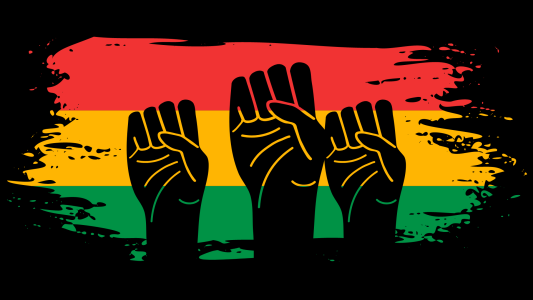
The holiday of Juneteenth represents hard-fought and long-overdue freedom. Celebrated on June 19th, it’s a day filled with festivities, including great food and folks wearing their best clothing. Why is that such an important part of the day? When Black people were slaves, they were given slop and scraps from their owners’ meals. Their clothes were rags pieced together from leftover materials or thrown out clothing. So the food and clothing represent a grand rising.
Even after the Emancipation Proclamation was signed in 1863, people in Texas were still trapped in slavery. Not until over two years later, and continued war between Northern and Southern states, did slaves in Texas actually have freedom—on June 19, 1865. They were no longer the property of white people who legally owned their bodies. Their children would no longer be subjected to cruel and inhumane treatment while their families were dismantled.
Yet the Black community is still ensnared in slavery, in the form of disparate representation in the current criminal legal system. And if you reside in the Texas Department of Criminal Justice (TDCJ), you are made to work in deathly hot conditions and freezing temperatures. Incarcerated workers in TDCJ make furniture, pick cotton, and maintain the prisons where they’re being held—typically for zero pay. Incarcerated people can also face punishment for refusing to work.
The fact that Black people are overrepresented in the Texas prison system and other state systems like Child Protective Services (CPS) is a harsh reality. In 2022, Black people’s bodily autonomy is still heavily surveilled and punished disproportionately. These punitive punishments disregard the value of Black Texans, our families, and our communities, causing ruthless intergenerational harm.
We are not free until we all are free. In next year’s legislative session, we’ll support partners like Coalition to Abolish Slavery Texas (CAST) and others as they fight to end slavery in Texas prisons. We hope you’ll join us, as well as recognize and lift the voices of the Black Americans who endure modern-day slavery this Juneteenth.
